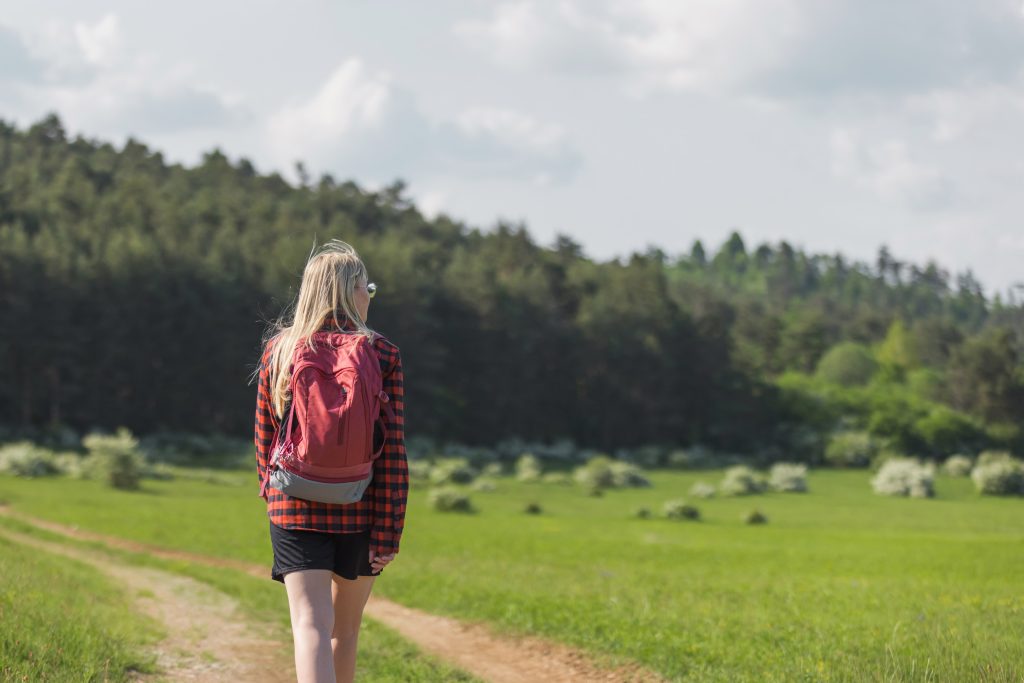خلاصہ: Why spending time in nature boosts brain health, according to a neuroscientist

BY THE OPTIMIST DAILY EDITORIAL TEAM
If you’ve ever stepped outside for a walk and returned feeling calmer, clearer, or more like yourself, you’re not imagining things. Nature has a real, measurable effect on your brain, and a growing field of research is revealing just how powerful that effect can be.
Marc Berman, Ph.D., a psychology professor at the University of Chicago and founder of the Environmental Neuroscience Lab, is at the forefront of this research. In his book Nature and the Mind, he explores how our environments, especially natural ones, can enhance memory, focus, and emotional well-being. The takeaway? Whether you’re strolling along a beach, through a forest, or just past a city tree, even small doses of nature can make a big difference for your brain.
What is environmental neuroscience?
Environmental neuroscience is a term Berman coined to describe the intersection of brain science and the natural world. This area of study looks at how different environments shape mental functioning and particularly how nature can help the brain recover from mental fatigue.
Berman’s early academic curiosity was shaped by his grandparents’ stories of surviving the Holocaust and a deep interest in how social environments influence human behavior. His work builds on psychologist Stephen Kaplan’s “Attention Restoration Theory,” which suggests that natural environments can gently engage the brain and allow it to recharge.
Why a walk in the park really works
To test Kaplan’s theory, Berman and his team conducted a study with a simple premise: Could a walk in nature improve cognitive performance?
Participants first completed a mentally draining task, then were asked to take a walk either through a quiet park or along a city street. When they returned and repeated the task, those who walked in nature improved their scores by about 20 percent. The group that walked in the urban setting did not show the same gains.
What’s especially striking is that even participants who didn’t enjoy their nature walk (say, those walking through a bitter Chicago winter) still showed improved mental performance.
How nature restores attention
To understand why nature has this effect, it helps to look at the brain’s two types of attention: directed and involuntary.
Directed attention is what you use to focus on tasks like work, reading, or studying. It’s mentally taxing and, like any resource, can get depleted over time. That’s why concentration tends to fade by late afternoon or after long periods of screen time.
Involuntary attention, on the other hand, is automatically captured by subtle, pleasant stimuli. Think of the sound of birds, the sight of rustling trees, or the rhythm of ocean waves. These natural elements create what scientists call soft fascination, a kind of effortless engagement that gently holds your focus while allowing your directed attention to rest and recover.
More than just mental clarity
The benefits of nature go beyond improving attention and memory. Berman’s research has linked green spaces to a range of mental and physical health outcomes:
- Better mood and cognitive gains in depression: In one study, people with clinical depression experienced even greater cognitive improvements after a walk in nature than healthy participants. “We thought ruminating in nature might worsen symptoms, but we found the opposite,” Berman noted.
- Faster healing: Hospital patients recovering from surgery who had views of trees required less pain medication and were discharged sooner compared to those with window views of a wall.
- Improved academic performance: Children living near or attending schools surrounded by more greenery performed better on attention and memory tests even after adjusting for socioeconomic factors.
- Lower crime and aggression: In Chicago public housing, residents with a modest view of trees or grass showed reduced aggression and lived in buildings with less reported crime.
Even tiny changes made a noticeable difference. In Toronto, Berman’s team found that adding just one average-sized tree per city block improved self-reported health as much as moving to a neighborhood with a ten-thousand-dollar higher median income.
Easy ways to add more nature to your routine
Good news: You don’t need to relocate to a forest cabin to benefit from nature. Berman recommends these accessible strategies:
- Aim for two hours of nature per week (or about 20 minutes a day). This is the “minimum effective dose” to see cognitive and emotional benefits.
- Take breaks when your attention is fading. Mid-afternoon or after intense screen time are great moments for a short nature reset.
- Simulate nature if needed. Looking at photos of natural scenes or listening to nature sounds for just ten minutes can offer similar (though slightly reduced) effects.
- Redesign your environment. Add a plant to your desk, hang photos of natural landscapes, or work near a window with a view. These subtle shifts can still support your focus.
- Don’t wait for sunshine. Rain or snow won’t cancel out the benefits. Nature exposure is helpful in all kinds of weather.
Nature is more than a luxury—it’s a necessity
Berman’s work drives home a powerful point: Nature isn’t just a pleasant backdrop. It’s essential for mental, emotional, and even physical health. From sharper focus to faster healing, better mood to improved community outcomes, natural environments have the ability to quietly transform how we think, feel, and function.
“A lot of people still think of nature as an amenity,” Berman says. “But it’s a necessity.”
The post Why spending time in nature boosts brain health, according to a neuroscientist first appeared on The Optimist Daily: Making Solutions the News.
Source: The Optimist Daily



